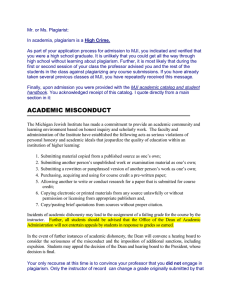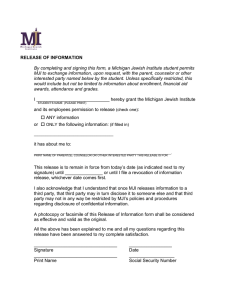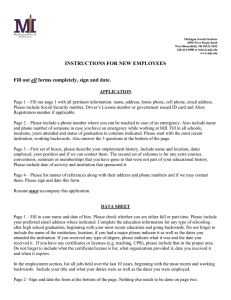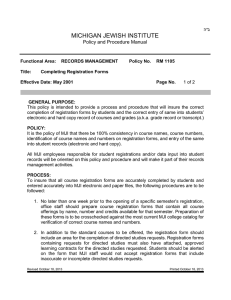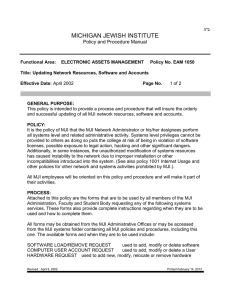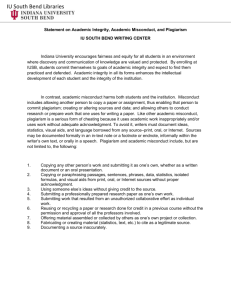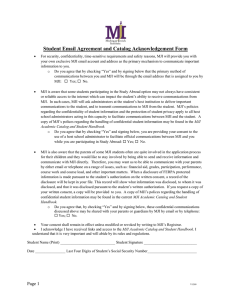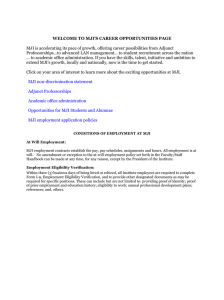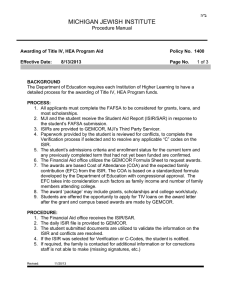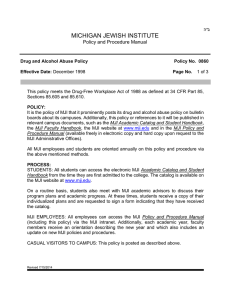MJI Memorandum
advertisement
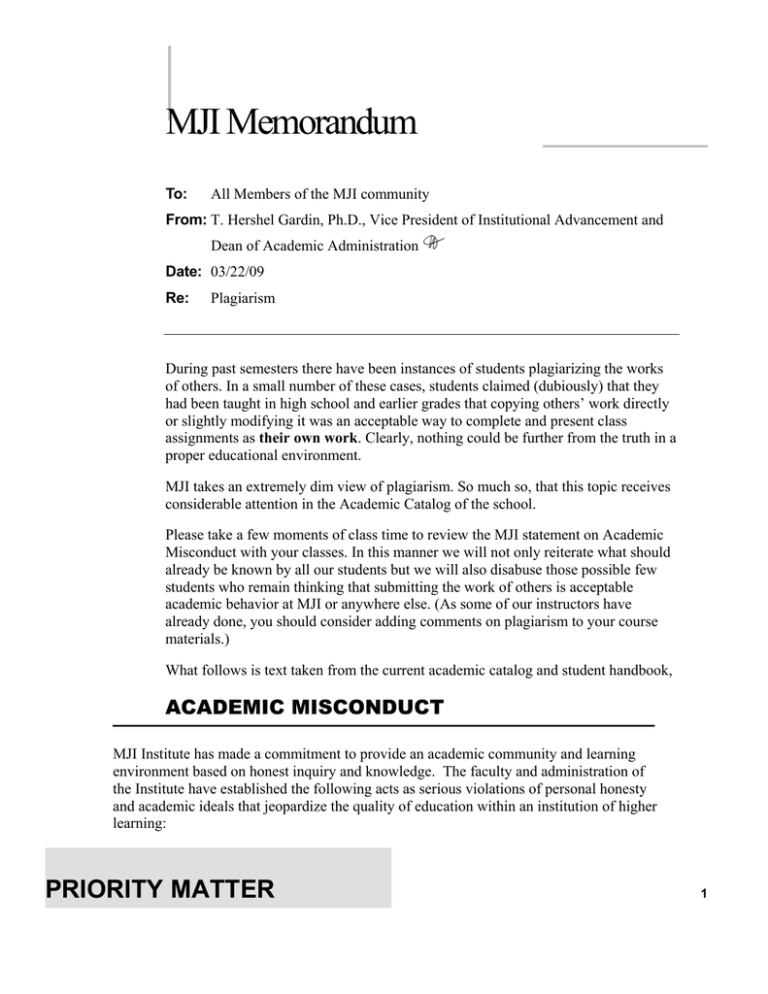
MJI Memorandum To: All Members of the MJI community From: T. Hershel Gardin, Ph.D., Vice President of Institutional Advancement and Dean of Academic Administration Date: 03/22/09 Re: Plagiarism During past semesters there have been instances of students plagiarizing the works of others. In a small number of these cases, students claimed (dubiously) that they had been taught in high school and earlier grades that copying others’ work directly or slightly modifying it was an acceptable way to complete and present class assignments as their own work. Clearly, nothing could be further from the truth in a proper educational environment. MJI takes an extremely dim view of plagiarism. So much so, that this topic receives considerable attention in the Academic Catalog of the school. Please take a few moments of class time to review the MJI statement on Academic Misconduct with your classes. In this manner we will not only reiterate what should already be known by all our students but we will also disabuse those possible few students who remain thinking that submitting the work of others is acceptable academic behavior at MJI or anywhere else. (As some of our instructors have already done, you should consider adding comments on plagiarism to your course materials.) What follows is text taken from the current academic catalog and student handbook, ACADEMIC MISCONDUCT MJI Institute has made a commitment to provide an academic community and learning environment based on honest inquiry and knowledge. The faculty and administration of the Institute have established the following acts as serious violations of personal honesty and academic ideals that jeopardize the quality of education within an institution of higher learning: PRIORITY MATTER 1 March 22, 2009 Submitting material copied from a published source as one’s own; Submitting another person’s unpublished work or examination material as one’s own; Submitting a rewritten or paraphrased version of another person’s work as one’s own; Purchasing, acquiring and using for course credit a pre-written paper; Allowing another to write or conduct research for a paper that is submitted for course credit; Copying electronic or printed materials from any source unlawfully, or without permission or licensing from appropriate publishers; and, Copy/pasting brief quotations from sources without proper citation. Incidents of academic dishonesty may lead to the assignment of a failing grade for the course by the instructor. Further, all students should be advised that the Office of the Dean of Academic Administration will not entertain appeals by students in response to grades so earned. In the event of further instances of academic dishonesty, the Dean will convene a hearing board to consider the seriousness of the misconduct and the imposition of additional sanctions, including expulsion. Students may appeal the decision of the Dean and hearing board to the President, whose decision is final. 2
